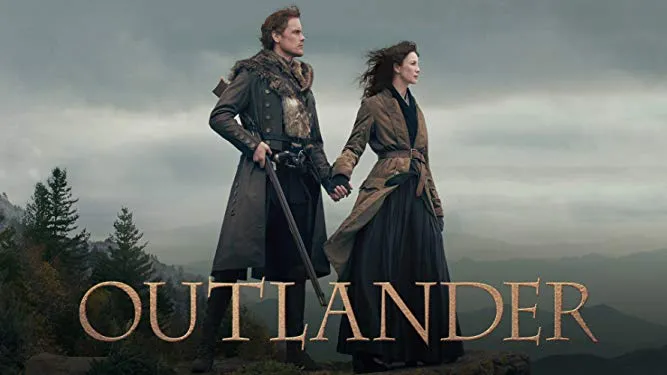
I seem to be in a rut today, and don't want to write about the dismal state of current politics. So instead, I will do this post about the Outlander TV series, which may be of interest to the many fans of SF and historical fiction. Note there area few modest SPOILERS below, but none that should seriously undermine suspense:
I started watching this series because it's produced by Ronald D. Moore, who also did Deep Space 9 and the "reimagined" Battlestar Galactica, both of which I am fan of (except for the awful final 1.5 or so seasons of the latter). But Outlander is actually quite different.
The series is based on a book series by Diana Gabaldon, which focuses on Claire Randall, a WWII-era British Army nurse who travels back in time to 1743 Scotland and falls in love with a Jacobite Scottish aristocrat (Jamie Frazer). I have NOT read the books, so this analysis is just about the TV show.
The show is fun to watch, and the actors in the leading roles all do a great job. The show also effectively portrays the values dissonance between Claire and 18th century people. But the SF and historical elements don't fully work. The next few points explain why.
Claire is very concerned about taking relatively small actions that might butterfly away the existence of members of her future 20th century family. On the other hand, she's totally fine with with pursuing major historical changes,such as trying to avert the Jacobite uprising of 1745 and - when that fails (not a big spoiler; the plot makes it pretty obvious she's going to fail) - trying to ensure that the Jacobites win. Either would be a major change in history that would surely butterfly away many things, including the future of her family!
I am no expert on 18th century Scotland. But critics who know more point out that the series distorts history on several points. Among those obvious even to me is the implication that most 18th century Scots were Catholic (they weren't) and that they overwhelmingly supported the 1745 Jacobite uprising (they didn't; the Hanoverian dynasty had lots of Scottish supporters, which is one of the reasons why the Jacobites lost). I have heard that Gabaldon handles these and other historical issues better in the books.
On multiple occasions, Claire uses her 20th century medical knowledge to heal sick and/or injured people in ways that would not have been possible in the 18th century, sometimes even large numbers of people at a time. This would surely have been imitated by at least some of the 18th century people who observed her (including a number who were doctors themselves) and the resulting improvement in medical technique would have been a major historical change in and of itself (again, butterflying away much later history). 18th century doctors and scientists were well aware of the possibility of technological and scientific progress, and perfectly capable of imitating innovations made by others. It was the Age of Enlightenment, after all.
Speaking of the Age of Enlightenment, very little of it is evident in the series, even though Scotland was in fact a major center of Enlightenment thought (ditto for Paris, where a large part of one season of the series is set). 18th century people come off as more benighted than many of them (at least the more educated ones) actually were.
That said, I don't want to criticise the time-travel plot too much. Time travel is inherently difficult to bring off convincingly, and it's extraordinarily hard to avoid paradoxes, and to deal with "butterfly effects" in a rigorous and coherent way.
A couple other reservations, unrelated to history/SF:
Many of the major villains are sexual sadists and some also bisexual. I suspect Gabaldon does this to expand the potential market for the books, to include readers of romance novels (the market there reputedly likes such themes). Still, the implication that people with "normal" sexual preferences can't be really big villains is problematic. I do not, however, mean to suggest the series is homophobic. There is even a (closeted) gay character who becomes a key ally to the heroes and has his own "spinoff" book series (which I have not read).
The plotting in the first two seasons is pretty good. But in later seasons, it relies more and more on improbable coincidences to move forward (many of them unrelated to the time travel element).
